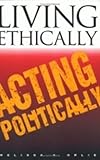Living Ethically, Acting Politically / Melissa A. Orlie.
Material type: TextSeries: ContestationsPublisher: Ithaca, NY : Cornell University Press, [2018]Copyright date: 1998Description: 1 online resource (248 p.)Content type:
TextSeries: ContestationsPublisher: Ithaca, NY : Cornell University Press, [2018]Copyright date: 1998Description: 1 online resource (248 p.)Content type: - 9781501732065
- 320/.01/1 21
- online - DeGruyter
| Item type | Current library | Call number | URL | Status | Notes | Barcode | |
|---|---|---|---|---|---|---|---|
 eBook
eBook
|
Biblioteca "Angelicum" Pont. Univ. S.Tommaso d'Aquino Nuvola online | online - DeGruyter (Browse shelf(Opens below)) | Online access | Not for loan (Accesso limitato) | Accesso per gli utenti autorizzati / Access for authorized users | (dgr)9781501732065 |
Browsing Biblioteca "Angelicum" Pont. Univ. S.Tommaso d'Aquino shelves, Shelving location: Nuvola online Close shelf browser (Hides shelf browser)

|

|

|

|

|

|

|
||
| online - DeGruyter Greek Mythology and Poetics / | online - DeGruyter Collective Action in East Asia : How Ruling Parties Shape Industrial Policy / | online - DeGruyter Negotiating the World Economy / | online - DeGruyter Living Ethically, Acting Politically / | online - DeGruyter History of My Own Times; or, the Life and Adventures of William Otter, Sen., Comprising a Series of Events, and Musical Incidents Altogether Original / | online - DeGruyter A Certain Idea of Europe / | online - DeGruyter Remapping East Asia : The Construction of a Region / |
Frontmatter -- Contents -- Acknowledgments -- Abbreviations -- Introduction -- I. The Contemporary Imagination of Power -- Introduction -- 1. Makings, Trespasses, and Ordinary Evil -- 2. Subject-Citizens and Corporeal Souls -- 3. Recovering Political Enthusiasm for Invisible Powers -- II. A Genealogy of the Modern Subject-Citizen -- Introduction -- 4. The Politics of Conscience -- 5. Hobbes's America -- III. Living Ethically, Acting Politically -- Introduction -- 6. Seeking the Limits of Our Selves -- 7. A Political Ethos of Conscience -- Notes -- Index
restricted access online access with authorization star
http://purl.org/coar/access_right/c_16ec
How can we conceive of freedom and responsibility when our power is limited and we are subject to the forces of society? Melissa A. Odie asks what it means to live responsibly amid historical harm and wrongdoing, in the wake of slavery and genocide, or in the face of severe resource asymmetries. By connecting resistance to evil with reflections on the nature of power and political action, Odie reveals the daily ways people commonly exercise power, inflict harm, and show themselves capable of actions that transform both selves and the world. Viewed in this context, truly ethical political action may appear miraculous but could happen at any time.Odie asks what it means to live freely when advantages are distributed disproportionately according to race, gender, class, culture, and religion. What do freedom and responsibility entail when, for example, creating a home for oneself implies social and economic commitments that render others homeless? To address these questions, Orlie links diverse intellectual concerns and constituencies in the social sciences and humanities, offering original interpretations of Hannah Arendt, Michel Foucault, and Thomas Hobbes. She compares their thinking to that of the seventeenth-century Quakers who found political possibilities in the powers they called "spirit" in the world and in themselves.
Mode of access: Internet via World Wide Web.
In English.
Description based on online resource; title from PDF title page (publisher's Web site, viewed 26. Aug 2024)


